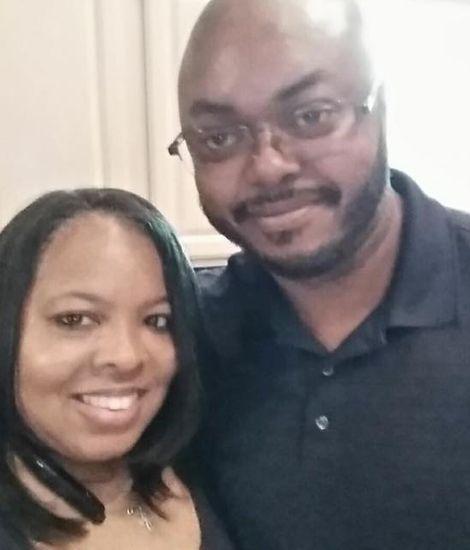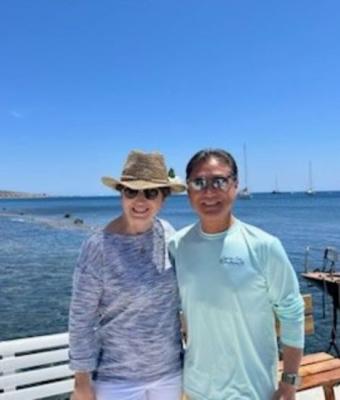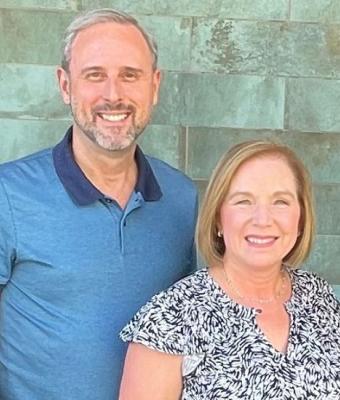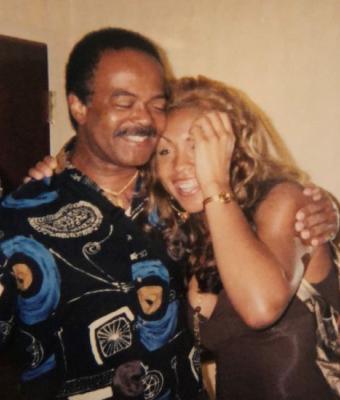My PD Story

Angela and Michael Bowman
For better or for worse, for richer or for poorer, in sickness and in health, till death do us part! If you have ever been married, you remember those words. However, no one knows when, or if, the worst and the sickness will come.
I have been married to the love of my life for 29 years. We have had a great married life. We have experienced ups and downs like any other married couple, but I can honestly say that the years have taught us the meaning of true partnership.
We have learned how significant our roles are in our relationship. We have learned the value of what we have built, and we have learned how to love one another without overwhelming each other with unrealistic expectations. But we have now been placed in the challenge of our lives, and we are being tested like no other.
In 2019, my husband Michael was diagnosed with Parkinson’s disease (PD). The diagnosis was welcome, as I had begun seeing changes in him at least two years prior. He is a creature of habit and always has a routine, but I began to see differences in the way he walked, talked and even with his memory.
Mike didn’t have what some would consider the classic symptoms of Parkinson’s. He did not have the tremor made famous by legendary boxer, Muhammad Ali, or involuntary twitches like Michael J. Fox. Instead, Mike’s primary Parkinson’s symptom was slowness of movement and speed (called bradykinesia). He also experiences chronic stiffness that is sometimes so debilitating it renders him in a statue-like state.
After my husband was diagnosed with Parkinson’s, I made it my mission to learn as much as possible. I found out about the Parkinson’s Foundation and joined a support group, where I heard about the Learning Institute. Attending the Learning Institute was eye-opening, informative and inspirational. Mike met other men living with the disease, I met other caregivers I could relate to, and it helped us feel less alone on this journey.
Back in the day, it was uncommon for older people, especially African Americans, to seek medical attention for physical and mental needs. Now, as a Research Advocate, I can ask questions and help raise awareness for PD. I use this role to spread information about the importance of clinical research and genetic testing.
Parkinson’s is a progressive disease, and Mike’s PD has slowly progressed over the last two years. On what we call a Parkinson’s good day, Mike can get out of bed on his own, feed himself, dress himself and even drive to the store. On a Parkinson’s bad day, I must bathe him, feed him and dress him. He also experiences hallucinations, falls and dementia. These are the days when my wife hat doubles as the caregiver hat.
My husband is now living on disability, and I work a full-time job from home. It has been a blessing to be able to stay home with him because his bad Parkinson’s days are becoming more frequent. This 5’11” former Marine who has lived his life so fearlessly and unapologetically, has turned into a man that slumps over, shuffles when he walks and constantly drools. But my husband is a trooper. He believes that his condition is what it is, and he has yet to complain.
Caregiving is the ultimate gesture of providing kindness to another person. It is the ultimate sacrifice of love and commitment. In my case, it solidifies the vows that I made to my husband 29 years ago: to love and to cherish, for richer or for poorer, in sickness and in health, till death do us part. It means, “I know that you matter, and I will prove it to you.”
Everyone wants to know they matter and that their life means something. I try my best to prove it to my husband every single day. Out of everything we go through in our lives, the best thing I can do for him is let him know that his life will not go unwitnessed or unnoticed because I will witness it and notice it, always.
I do what I need to do to ensure that Mike has the best quality of life. I refuse to let Parkinson’s win. This isn’t the life I thought we would have together, but it’s the life we have been given. I am still looking forward to our days ahead, even if I don’t know what those days will look like.
Help us improve Parkinson’s research. Become a Research Advocate today.
Related Materials
More Stories
from the Parkinson's community


